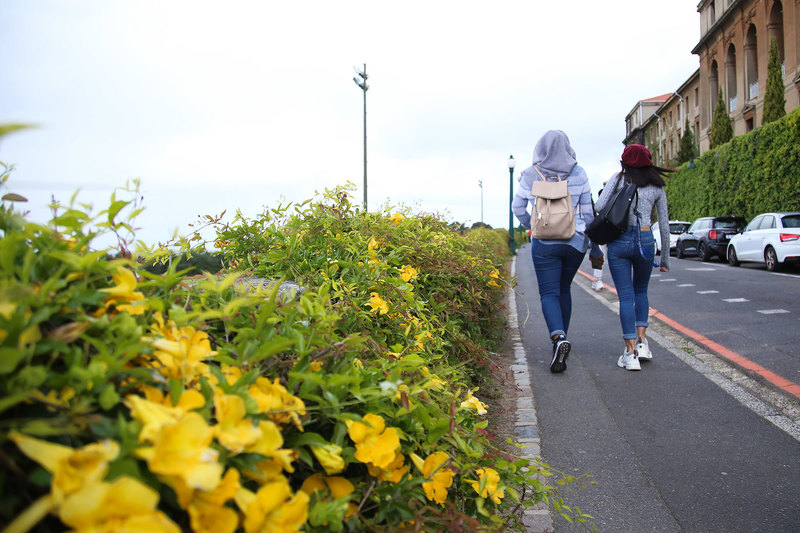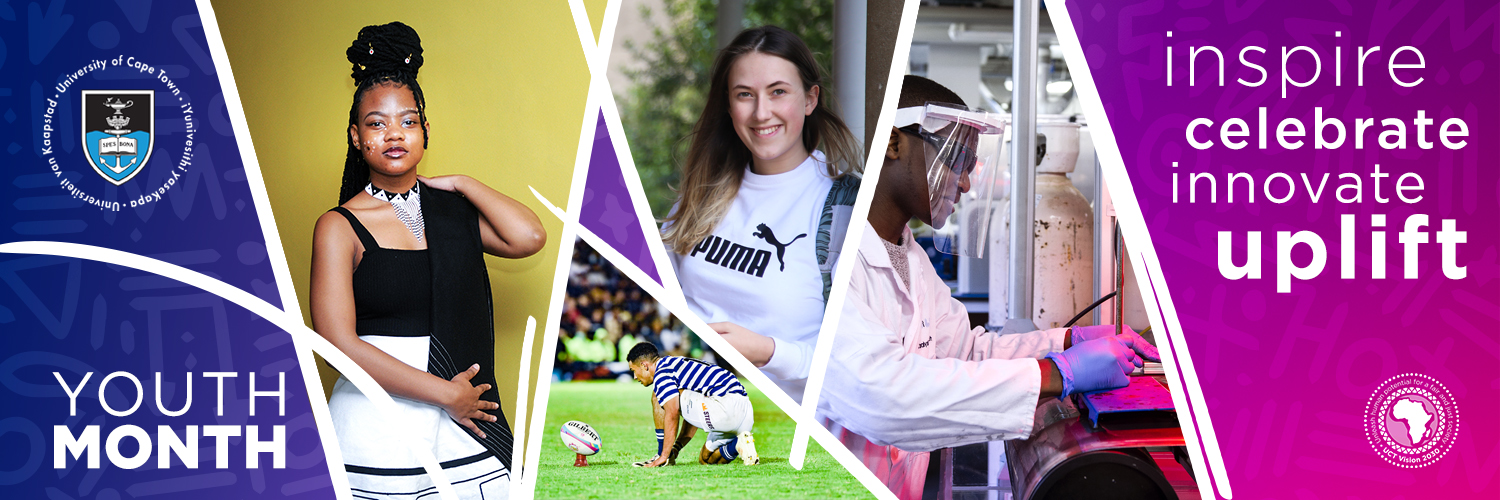Youth Month: Top STEM matriculants choose UCT
19 June 2023 | Story Helen Swingler. Photo Je’nine May. Read time 2 min.
Half of the National Science and Technology Forum’s (NSTF) top 26 science, technology, engineering and mathematics (STEM) matriculants from 2022 chose to study at the University of Cape Town (UCT) this year. Their names were announced in an NSTF media release on 15 June.
Each of the 26 students scored high marks in mathematics and physical science in the 2022 National Senior Certificate Examinations. They are now first-year students studying STEM-related courses at South African universities, and part of the NSTF’s 2022/2023 Brilliants Programme.
Now in its 22nd year, this programme supports young South Africans who have the potential to be future STEM leaders and innovators. The NSTF selects the candidates from those identified annually by the national Department of Basic Education. The programme’s sponsor is the national Department of Science and innovation (DSI).
Last year, one-third of the 2022 cohort of 19 “Brilliants” chose to make UCT their academic home. Of the current UCT group of 13, nine students are registered for MBChB degrees in the Faculty of Health Sciences. Four students have registered with the Faculty of Engineering & the Built Environment; one studying civil engineering, one mechatronics and two electrical and computer engineering.
The 13 students are from KwaZulu-Natal, the Free State, Limpopo, the Eastern Cape, Mpumalanga, Gauteng and the Western Cape.
Inspire and motivate
The NSTF media release said that the initiative aims to “inspire and motivate young, talented people”. Part of the programme involves contact with potential role models and mentors and advice from experts.
“Some of these top performers had received very little acknowledgement, especially in disadvantaged areas and schools,” said the release. “The recognition includes publicity for the Brilliants Programme, the students and their provinces.”
The opportunity also introduces candidates to bursary options, including bursaries from entities such as the DSI.
Apart from the academic responsibilities, the group of 26 will visit science-related facilities as the Origin Centre, the Tshimologong Precint, the Steve Biko Hospital, and the Radio Astronomy Observatory in Hartebeestpoort.
The UCT students are: Gwiba Nonkenge (Eastern Cape), Neo Mokoena (Free State), Tebatso Herman Dilebo (Gauteng), Zemfundo Mthembu (KwaZulu-Natal), Lifalethu Sbonelo Zikode (KwaZulu-Natal), Andile Gumede (KwaZulu-Natal), Simphiwe Kubheka (KwaZulu-Natal), Lutendo Portia Rambevha (Limpopo), Phenyo Tlou Phukubje (Limpopo), Lonia Maphutha (Mpumalanga), Voninga Kwetsimani Maritze (Mpumalanga), Rachel Meiring (Western Cape), Atenkosi Khonzani (Western Cape).
 This work is licensed under a Creative Commons Attribution-NoDerivatives 4.0 International License.
This work is licensed under a Creative Commons Attribution-NoDerivatives 4.0 International License.
Please view the republishing articles page for more information.
Youth Month 2023

This Youth Month, UCT News will profile young University of Cape Town (UCT) community members who are hard at work across South Africa in an effort to make a difference in society. The month of June holds significance in the country as it is a commemoration of the historic tragedy of 16 June 1976 when hundreds of youth were killed while protesting against unjust education policies.

UCT Children’s Institute, in collaboration with its partner organisations, has launched a petition to encourage government to improve mental health support services for children and adolescents.
08 Jun 2023 - 7 min read Youth MonthVideo
“We can and must change things for ourselves and improve the state of this country for those who will come after us.
We can’t do that while being idle.”
– Sukainah McCabe, a fourth-year social work student




















